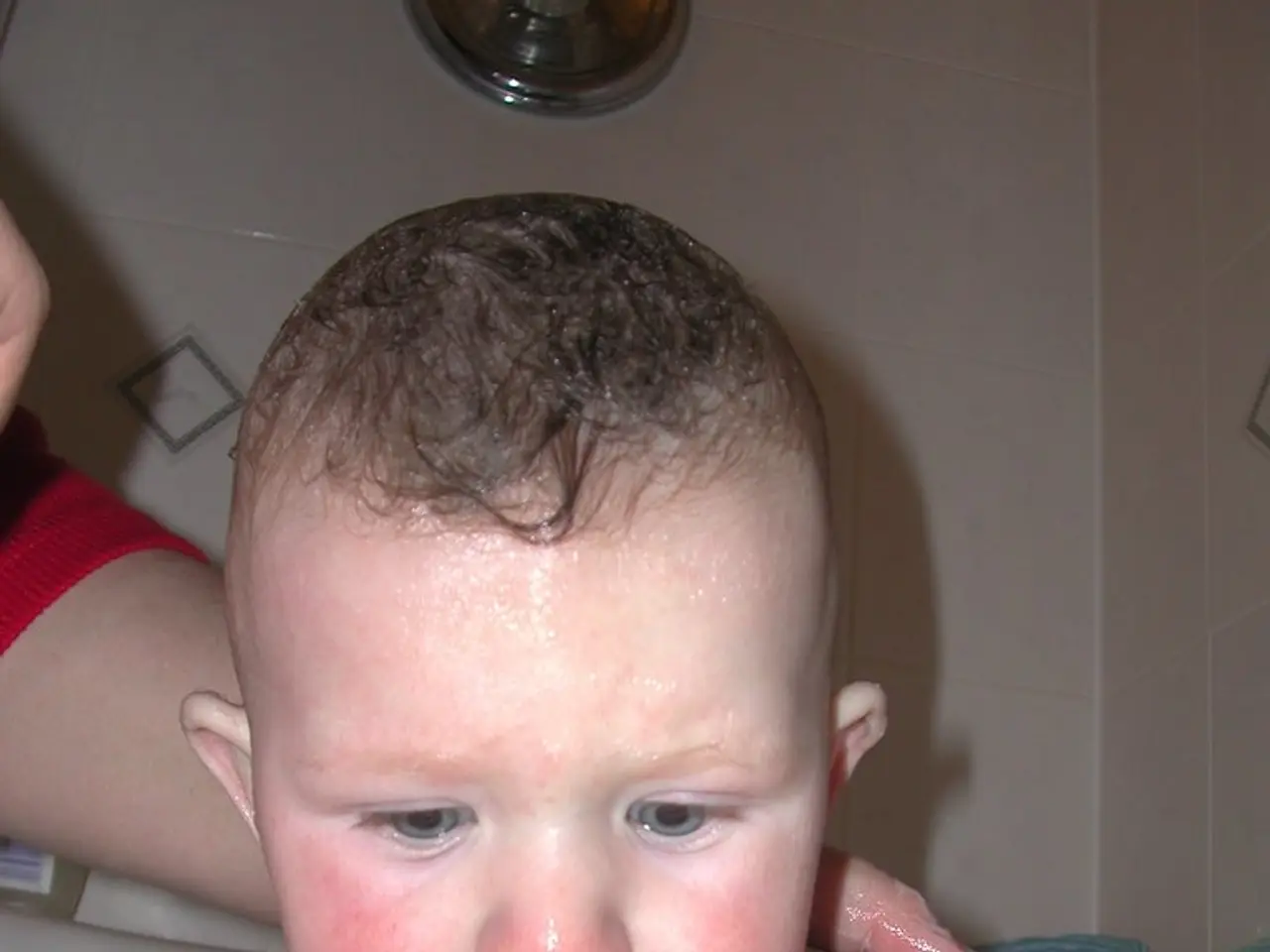Baby Hydronephrosis: Root Causes, Signs, and Remedies
Hydronephrosis is a medical condition that affects the renal system in babies, causing urine to accumulate and leading to pain while urinating. This condition is often caused by congenital abnormalities, such as ureteropelvic junction (UPJ) obstruction, resulting from urine flow obstruction in any part of the urinary tract.
Common symptoms in babies include a palpable abdominal mass, failure to thrive, recurrent urinary tract infections (UTIs), blood in the urine (hematuria), and changes in urination patterns such as frequent urination, painful urination, or reduced urine output. Some infants might show no symptoms, especially if the hydronephrosis is mild.
Diagnosis is primarily done using ultrasound imaging, which detects kidney swelling and urine accumulation. Additional tests may be required, such as intravenous urography or renal scintigraphy, to evaluate ureteral patency and kidney function.
Treatment depends on the severity and symptoms. Mild or asymptomatic cases are often monitored with observation, as some hydronephrosis resolves spontaneously after birth. Babies with recurrent infections or significant obstruction may receive antibiotics to prevent infection and, in severe or declining kidney function cases, surgical interventions like Anderson-Hynes pyeloplasty to correct the obstruction may be necessary.
In summary, hydronephrosis in babies is commonly caused by congenital ureteral obstructions or aberrant vessels. Symptoms include abdominal mass, UTIs, failure to thrive, hematuria, and altered urination. Diagnosis is primarily done using ultrasound, and treatment varies from observation to antibiotics and surgery depending on the severity of the condition.
It is essential to monitor and treat hydronephrosis to prevent kidney damage and complications like pyelonephritis and obstructive nephropathy. If hydronephrosis is suspected during prenatal testing, additional checkups may be recommended to monitor the baby's kidney health. In critical cases, fetal intervention may be necessary, including neonatal surgery and maternal-fetal medicine.
- Hydronephrosis, a medical condition impacting newborns' renal systems, is often linked to congenital abnormalities, such as UPJ obstruction, caused by urine flow blockage in the urinary tract.
- Pregnancy complications could expose fetuses to hydronephrosis, necessitating close monitoring during prenatal testing.
- Science and medical advances have made it possible to diagnose hydronephrosis primarily through ultrasound imaging, detecting kidney swelling and urine accumulation.
- Mental health is significant during parenting, as caring for a child with hydronephrosis may require coping strategies and support networks.
- Medicare provides coverage for various therapies and treatments related to hydronephrosis, ensuring accessible care for families.
- Fitness and exercise play a crucial role in maintaining overall health and wellness for parents, ensuring they can provide optimal care for their child while managing their own health.
- Skin care is essential not just for parents but also for babies, as skin conditions can increase the risk of infection in hydronephrosis patients.
- Womens-health and mens-health both play a role in having a healthy reproductive system, potentially impacting the occurrence of hydronephrosis in subsequent pregnancies.
- In cases of severe hydronephrosis, chronic diseases like cance or complications like eye-health issues could become added concerns, requiring careful monitoring and management.
- Therapies and treatments, backed by science, are essential for managing and treating hydronephrosis to prevent kidney damage and related problems like mental-health issues due to the stress of chronic conditions.




